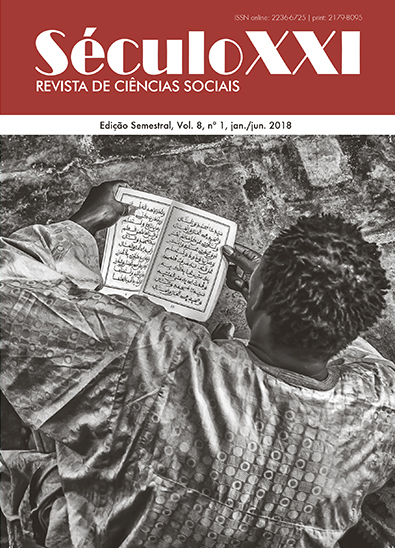Presentation of the Dossier
DOI:
https://doi.org/10.5902/2236672535661Abstract
Human mobility is a complex phenomenon that has intensified in the 21st century, both quantitatively and from the point of view of the various ways in which it has been processed and manifested. The migration phenomenon has been a constant preoccupation of research in several areas of knowledge, both inside and outside the Social Sciences. However, what has attracted attention in the last decades, due to the new communication technologies, as well as the shortening of space-time, are the subjective and objective dynamics of being constituted as subject in these paths. Considering the increase of human displacements, in their different forms, we aim, for this dossier, to aggregate works that analyze and bring empirical elements about the social and political processes of these displacements, be it from the thematic, theoretical point of view, as well as new approaches to these issues. In this sense, this issue of the journal is dedicated to works that aim to understand the mobilities and their different displacements in their multiple facets, as well as to works that deal with social interactions, processes of differentiation and alterity arising from migratory processes, as well as those that relate migration to the world of work, the migratory project, and family and religious strategies. We have also selected papers devoted to analyzing aspects of international displacement that have gained prominence in the recent world scenario, insofar as they have dealt with transnational dynamics and transmigrants moving between two or more societies. We were very pleased to receive a large number of articles and it was hard work to select only a few. This points us to the growth of this area of research in Brazil and to how it is sedimenting, from a theoretical and methodological point of view, in several areas of Human Sciences.
Downloads
Downloads
Published
How to Cite
Issue
Section
License
Authors who publish in this journal agree with the following terms:
1. Authors keep the copyrights and allow the journal the right of first publishing, having the paper simultaneously licensed by Creative Commons Attribution License that allows the sharing of the article – copyright recognized - and first publishing in this journal.
2. The journal is allowed to require the copyrights transfer, allowing the article to be used under noncommercial purposes, including the right to send the paper to Free Access or Paid databanks, not assuming the obligation to pass on the value charged from users to the authors.
3. Authors are allowed to take additional contracts separately for nonexclusive distribution of the paper’s version published in this journal (e.g. publishing in institutional repository or as book chapter), recognizing the copyright and first publishing in this journal.







